16 Successful women on making the leap from employee to entrepreneur – & what the tipping point was
July 20, 2022
Reading time: 14 minutes
Millions of Americans walked away from their jobs after COVID-19 changed the world as we know it. According to the 2022 U.S. Bureau of Labor Statistics, 4.5 million people have voluntarily left their positions – the highest level ever recorded. Here, 16 women open up about what made them ditch their 9-to-5 job and make the switch from employee to entrepreneur: how it all started, what really happened to make them call it quits, and how it’s going now.
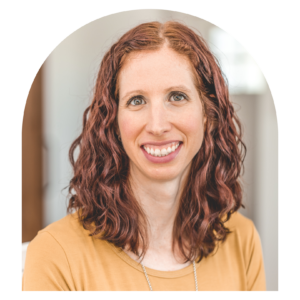
Alyssa Flegg, 40, founder of Minds Well Fed, Langley (Canada)
Alyssa was a professional accountant for 20 years but never had a passion for it. “I had a love for food and the magic of meal planning, so I started taking part-time courses in nutrition, biology, and chemistry.” In 2016, life threw her a curveball when her mother-in-law was diagnosed with early-onset Alzheimer’s disease which left their family devastated.
“This condition is gutting and yet it is up to 90% preventable,” says Alyssa. “The food we eat, the sleep we get, how much we move our body, the stress we manage (or don’t manage) … these all matter when it comes to reducing our risk for Alzheimer’s.”
In 2017, Alyssa left her job as an accountant and founded Minds Fed Well, offering 1:1 coaching to help people understand and mitigate the risk factors for Alzheimer’s. “Not everything in the entrepreneur world is rosy, it feels like there is always something new to learn or master, and yet, the more I follow my passion, the happier I am.”
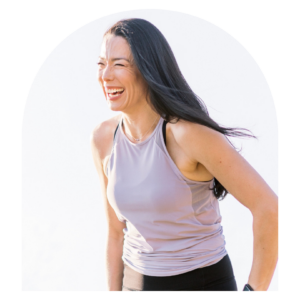
Amy Paul, 46, founder of Git LIIT! with Amy, Pismo Beach
Amy was working as an IT business analyst for a fitness and leisure health club chain. When COVID-19 hit in March 2020, Amy hopped on the WFH (workout from home) trend and started a small side hustle, teaching online classes, and running small health challenges.
While her job provided stability during COVID-19, it was soul-sucking, says Amy. “My true passion is to see people living happily in health and living lives of excellence,” she says. Since then, things have been busy. Amy now has a good client base and is also focused on her business’s new offering – a high-ticket course that aims to help people lead a pain- and stress-free life.
“Whether you bite the bullet and go for it or choose the slow-and-steady route, just remember to trust your gut,” says Amy. If you’re finding that your job is soul-crushing, take a deep introspective look at what you want to do and what kind of legacy you want to leave, and let that guide your decision. You can’t win if you don’t try.”
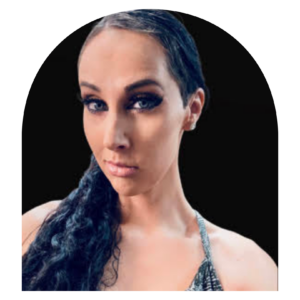
Ashley Korff, 27, founder of Hopeless2Healthy, Newport
Ashley was working in aerospace engineering when she started her business in January 2020. She grew up a sugar-addicted, obese kid, while her grandfather was dying from stage 4 cancer. “I had to figure it all out by myself and save my own life,” says Ashley.
After falling in love with fitness, Ashley started a business in natural weight-loss management for CEOs. “Obesity doesn’t happen overnight, and it doesn’t develop from the happiness of life – it comes from grief, trauma and stress,” she says. “I was tired of rotting away in corporate, living paycheck to paycheck, and sitting on the sidelines in the fight against obesity.”
Ashley cautions that while she came out the other side, quitting her job was no joke. “I think too many people on social media lie about the hardships of starting a business.” Ashley had to go back to her old job eight months after quitting because her company was failing. “There is no shame in staying in your job until your business is making money. Leverage that income to fund your business until the right time comes.”
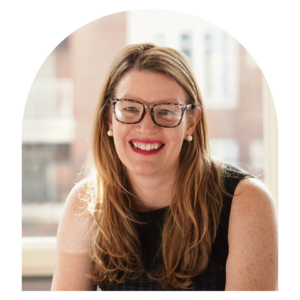
Beth Napleton, 43, founder of Beth Napleton Consulting, Chicago
Beth has been in education for over 20 years. Earlier in her career, after having a transformational experience at a school in rural North Carolina where 90% of the students qualified as low-income,
90% were African American, and 100% were accepted to college, Beth decided to start her school.
“When I moved back to my hometown of Chicago, I wanted to work at a school just like that, but I couldn’t find it, so I started it,” she says. In 2013, Beth founded Chicago Collegiate, a 5th-12th grade charter school network on the far south side of Chicago. But Beth wasn’t done yet.
After getting divorced in 2018, she realized that she would need a more flexible job that also made more money. “We bought our house on two incomes, and now the mortgage was just mine.” Beth knew how essential strong leaders were in mission-driven organizations, so she started a coaching and consulting business, using her vast expertise to help leaders navigate the inevitable challenges to reach their goals.
“At the end of the day, you’re betting on yourself, and as a friend of mine says, ‘Anytime I’ve bet on myself, I’ve never lost.’ Exactly!”
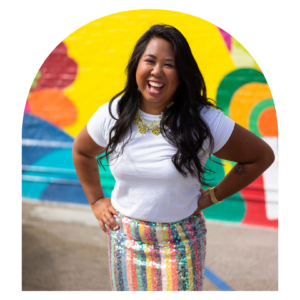
Carissa Begonia, 40, founder of CONSCIOUSXCHANGE, Los Angeles
Carissa, a first-gen Filipina-American daughter of immigrants, was formerly the head of Diversity, Equity, and Inclusion (DEI) at Zappos, a role she helped create while working there. “I was always the first, the newest, the youngest, and the only female and minority in the room, and I wondered why this was.” Carissa pitched (and landed) her role at Zappos, earning her seat at the table.
Though, after nearly 15 years as a successful intrapreneur and company leader, Carissa wasn’t fully seeing eye to eye with the rigidity of the corporate world, so she started her own business to empower others like her. “I thought, ‘If I’m successful at doing this in-house, why don’t I do this for myself?’” Carissa founded CONSCIOUSXCHANGE, a coaching and consulting company with a mission to forward the social and economic advancement of racialized communities by helping BIPOC (black, indigenous and people of color) professionals and white allies launch and scale their businesses.
“As a child of immigrants, it’s scary to leave the security of a corporate job and start your own business.” But Carissa had a “deep knowing” that this was her calling. “When you can’t find what you’re looking for, you do it yourself.”
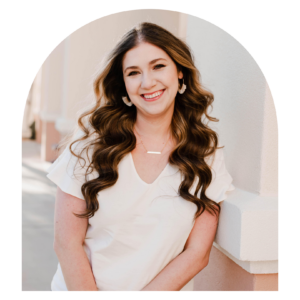
Clarissa Briones, 33, founder of Blossoming Fertility, Las Cruces
Clarissa was working at a major insurance company and was focused on climbing the corporate ladder. After getting married, she and her husband started trying to fall pregnant and experienced fertility challenges for almost 3 years.
“I realized the stress of my job, including the long hours, skipped meals, and lack of sleep were negatively impacting my health and my ability to get pregnant, I started to question whether it was truly worth it.” After diving deep into the potential root causes, Clarissa discovered a passion for women’s health and was determined to share what she had learned with others.
Clarissa is now a certified fertility health coach, who works with career-oriented women to improve their cycle health and optimize fertility before getting pregnant. “Don’t let fear hold you back from helping the people who need you.”
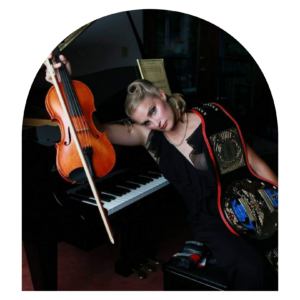
Janna Piper, 43, founder of Phoenix Pet Care, Portland
Janna was working as a bookkeeper for a marble and granite wholesaler before starting her own pet-sitting business. “I have been pet sitting since I was 15 and didn’t even know people did it professionally until I started looking into turning it into an official business.”
Janna is now a professional pet sitter, taking care of animals in their own home while their parents are away enjoying a worry-free vacation.
“You have to decide if you want to take the plunge into the unknown. Even though the struggle is real, you’ll find peace in knowing that what you’re doing has real meaning, not just for your clients, but for you, too,” says Janna.
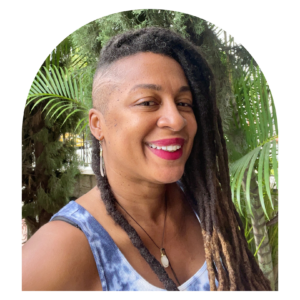
Janvieve Williams Comrie, 48, founder of Aligned Strategies Consulting and AfroResistance, Bronx
As a black and Latina human rights strategist, Janvieve worked for several non-profit organizations before starting her own gig. Stress, burn-out, and lack of funds all contributed to her handing in her notice.
“The final push was I had a migraine, and I had to work otherwise I would not be paid. If anyone knows migraine, you know you really cannot work with a migraine. But I had to push through and do it. I decided that day, no more. I had to shift and do something different,” she says. Janvieve now runs her own consulting business, helping women find their life purpose, as well as her own non-profit organization, AfroResistance, which is committed to fighting for human rights, racial justice and gender justice in America.
Janvieve encourages tapping into the resources around you – your network, your friends, what is available in the community, and so on. “Start with what is accessible but start,” she says. “For me, starting was the hardest part, but the most important.”
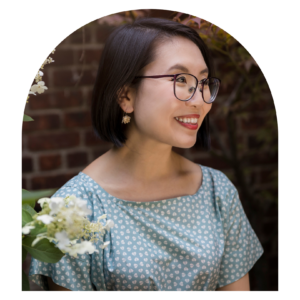
Linda Yi, 32, founder of Panda Cub Stories, New York City (NYC)
Before starting her own business, Linda worked in higher education administration. “In many ways, I liked my job. My co-workers were wonderful, and I had the best supervisor I could ask for. But at the same time, I realized that I didn’t want her job.”
Linda is now a comic artist and Sichuan cooking teacher based in NYC, where she works full time on her slice-of-life webcomic called ‘Panda Cub Stories’, offering online cooking school classes that teach Sichuanese cooking and a monthly e-book subscription that teaches students how to read Chinese, through comics.
“While becoming wealthy by making art is possible, it is not guaranteed,” cautions Linda. “So, for anyone who needs to hear it: you are not ‘selling out’ if you focus on making money as well as making art.” I advocate for artists to have a day job that supports their artmaking. The best kind of day job, in my opinion, is one that you’re equally passionate about a service-based business that connects you to your audience.”
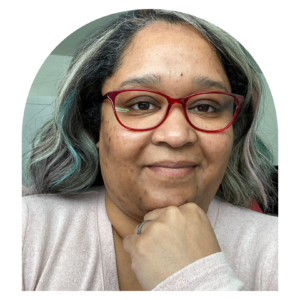
Liropeya ‘Peya’ Robbins, 42, founder of Pey Pey the VA, Vancouver
“I recently worked as an assistant property manager in NYC before quitting my job and jumping butt-first into entrepreneurship,” says Peya. She had just moved from New York to Wisconsin and had to quit her job, but when she arrived, she had no desire to go back to work. “I was tired of letting other people make decisions and tell me where I needed to be.”
Peya has also struggled with illness most of her life. “I did not have the physical strength to get up every day and be somewhere for a paycheck,” she says. “I landed my first major client (who I still work with today) by simply asking them to be my client. That was the confidence boost I needed. I knew that I could build a thriving business even though I was not taught that this was an option.”
Peya now has her own virtual assistant business. “It takes work, and you have to commit fully, and just because you’ve never done it before, doesn’t mean you can’t do it.”
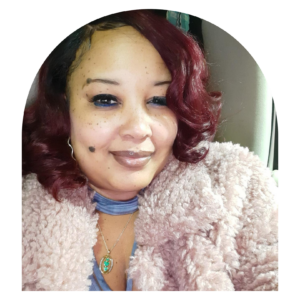
Lynnette Caldwell, 54, founder of Business Matters and Nana’s Pudding, NYC
Lynette worked as a principal administrator for a New York law enforcement agency but after she was involved in a car accident (on the job) that deemed her disabled, she was left feeling unappreciated after dealing with some harassment at work. “While I loved the work I did, I worked in a terrible and toxic work environment.”
The time had come to answer a question she’d been asking for a while: What would happen if she gave herself the space to focus on what she loved to do? Now Lynette has several businesses. She’s a mindset, business and wealth practitioner who teaches people how to start businesses and build generational wealth. She also has a bakery, a hair wellness line, and is a tax consultant.
“Start a side hustle, save money from that hustle, and save a little from your paycheck (if you can). Once you start seeing consistent traction in your business, that’s their queue to move on, and don’t look back!”
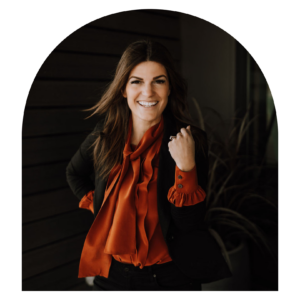
Marion Wagner, 43, founder of Marion Wagner Coaching, Denver
“I was a school psychologist when I started my first online business,” says Marion. “I loved my work as a school psychologist, however, my role over the years turned into nonstop testing and report writing. I remember driving home one day after picking my son up from daycare and realizing that I was falling into a depression because I was so unfulfilled in my work.”
“I finally asked myself ‘Are you willing to live the next 20 years of your life like this?’ My answer was a quick + resounding ‘Heck no!’” Within a couple of years, Marion’s side hobby had surpassed her psychologist income. That was it. Marion called it a day. Marion is now a business mindset coach, helping online entrepreneurs create a vision for growing their businesses.
“It’s always going to feel scary. You’ll always have the ‘what ifs’ rearing their annoying little heads. Take a deep breath and know that whatever comes your way, you’ll figure it out. Keep telling yourself, ‘I can do this!’”
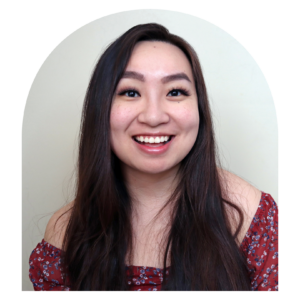
Michelle Guo, 25, founder of MAGICAVE Media LLC, NYC
Before starting her own business, Michelle was working at a law firm as a paralegal. “When I graduated from college, I thought this was what my dream job looked like,” she says. It wasn’t. Michelle says her work environment was toxic and emotionally abusive at times.
In December 2020, Michelle was going through her year-end review, and thought, “Is there any amount of money that would make me happy to stay here?” The answer was no. The tipping point for her was when her mom fell very ill and shortly after, her dad was involved in a serious accident, leaving him a quadriplegic. “I had to manage myself, my younger brother, my mother’s and father’s medication and appointments. It was a lot.”
With everything going on in her personal life, Michelle developed a passion for time management. “Organization comes second nature to me.” Michelle saw how people, just like her, struggled to juggle it all and became determined to help others solve this problem. Michelle is now a full-time productivity life coach. She helps overwhelmed creative freelancers create structure in their schedules through 1:1 strategic time management coaching to help them lead a more balanced life.
“I encourage any aspiring entrepreneur to seek out other entrepreneurs for guidance and help. Where I grew up, there wasn’t a lot of understanding. You were encouraged to either be a doctor or a lawyer. It’s important to lean on others. If I can do it, you can, too.”
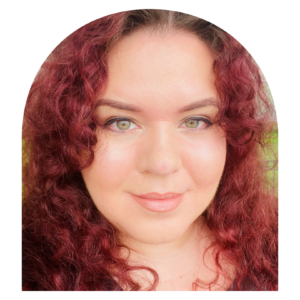
Nikki Berns, 32, founder of Tala Editorial, LLC, Chicago
“I used the administrator for a high-end salon. Before I started my company, I was floating around in the universe trying to find a place to land – no matter what I tried, nothing seemed to stick! I’d been an assistant teacher in early childhood education, a retail associate for multiple major corporations, a librarian, a researcher, a nanny, and a cultural anthropologist,” says Nikki.
When the pandemic struck, Nikki realized she needed a change. “I was making more money sitting at home doing nothing on the government’s stimulus package,” she says. “I tried hanging on for the sake of loyalty, but things kept getting worse.” Finally, Nikki went into her annual performance review, ready to hand in her resignation… and they fired her. “I was broke, no pension, no unemployment, but most importantly: no urge to return to that kind of environment.”
During her unemployment period, Nikki thought hard about what she loved most about this new life and what she refused to sacrifice ever again. “All the answers pointed at one solution: I had to start my own business and never be an employee ever again,” she says. Today, Nikki is the founder and owner of Tala Editorial, LLC: an editorial company focused on helping self-publishing authors create, curate, and position their novels for bookstore retail.
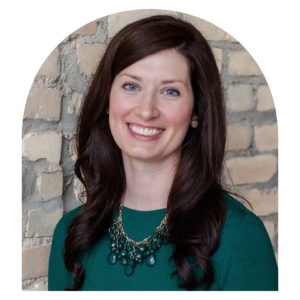
Quinn Driscoll, founder of The Value Gal, Minneapolis
Quinn started her career at an accounting firm and then spent ten years in consulting, helping hundreds of business owners with financial issues in legal proceedings.
“I worked in a high-stress environment where all of my clients were going through extremely difficult times, both personally and financially. A few years ago, I went to a conference and heard a financial coach speaking about her work with people who wanted to improve their relationships with money. It was one of those lightbulb moments. I looked around the room at my colleagues (whom all looked exhausted) and thought, “I don’t want to do this, I want to do that.”
Quinn used her expertise to start The Value Gal; offering coaching programs for business owners who want help with money stress, money systems, and money strategy.
She wants to encourage all aspiring female entrepreneurs who don’t think of themselves as ‘numbers people’, to remember that money management is a set of skills, not a personality trait. “Taking the time to build those foundational skills will set you up for success as your business grows.”
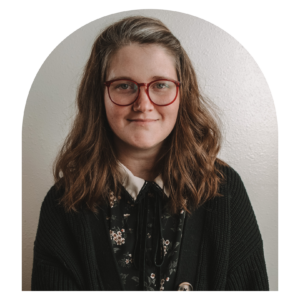
Tiffany Grimes, 31, founder of Burgeon Design and Editorial, Salem
After graduating with her master’s in creative writing, Tiffany started working at an office job. “With the stable hours and income, I was able to launch my business, Burgeon Design and Editorial, as a side hustle.
Six months after starting Burgeon, Tiffany quit her office job to work full-time at Burgeon. “I had been putting it off, but an editor friend asked me what I was waiting for. I couldn’t find a decent answer, so I gave my two weeks’ notice the very next day,” she says.
“I had no safety net and no plan, but it was honestly the best decision I could have made. I can’t imagine going back to work for someone else.”